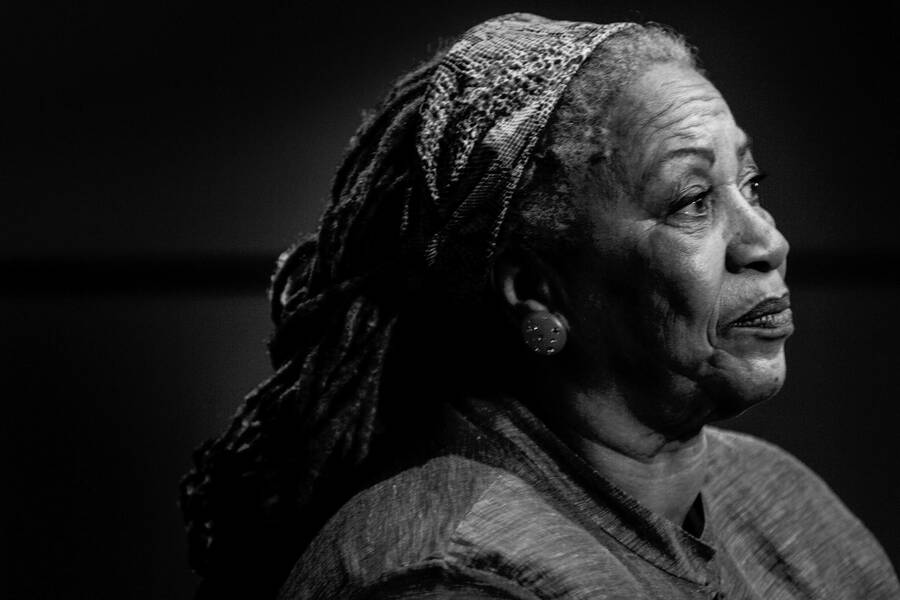
Toni Morrison published many essays, pieces of literary criticism, and children’s books, as well as 11 novels. But she only published a single short story: Recitatif. The story was, Morrison explained to The Paris Review, an experiment meant to “provoke and enlighten” readers by circumventing the enclosures of meaning that the language of racial identification enacts: “Soon as I say, Black woman . . . I can rest on or provoke predictable responses, but if I leave it out then I have to talk about her in a complicated way—as a person.” Rendered as a series of vignettes, Recitatif follows two girls, Twyla and Roberta, who meet in a state shelter, where they quickly become close friends. One girl is white, one is Black, and the meanings of their racial difference matter. We don’t know which is which, and this matters, too.
Throughout their lives, Twyla and Roberta encounter each other, every meeting seeming to offer clues that in the aggregate only challenge the reader’s certainties: On her way to a Jimi Hendrix concert, Roberta walks into the hotel where Twyla is a waitress; years later, Roberta spots Twyla in the checkout line at a fancy grocery store, where Twyla is wracked with guilt for spending her husband’s fireman salary while Roberta’s limousine awaits her in the parking lot; during an autumn of—in the language of the newspaper headlines— “racial strife,” the women, now mothers, find themselves on opposite sides of a school integration protest (though who represents which side remains mind-bendingly elusive). At each meeting, the women variously reach for and reject each other, and we are made to understand that their racial difference has something to do with how their lives have diverged—and how they feel about their discrepant positions. Absent the fictive clarifications of racial identification, the reader of Recitatif is made to confront their own reliance on racialization to organize sympathies and desires, and to offer bottom-line explanation.
First published in a 1983 anthology that is now out of print, Recitatif was reissued as a standalone volume last month by Knopf. On the occasion of this republication, we have invited five writers—Dionne Brand, Simone Browne, Lauren Michele Jackson, Claire Schwartz, and Adania Shibli—to revisit Morrison’s story. While some of the essays, such as Shibli’s, depart from the story to consider how linguistic practices script relation in various contexts, others, like Brand’s, stage and annotate the experience of reading Recitatif. Taken together, these short essays manifest a polyphony of form and thought, elaborating on the complexity that Morrison sought, and which her story catalyzed.




